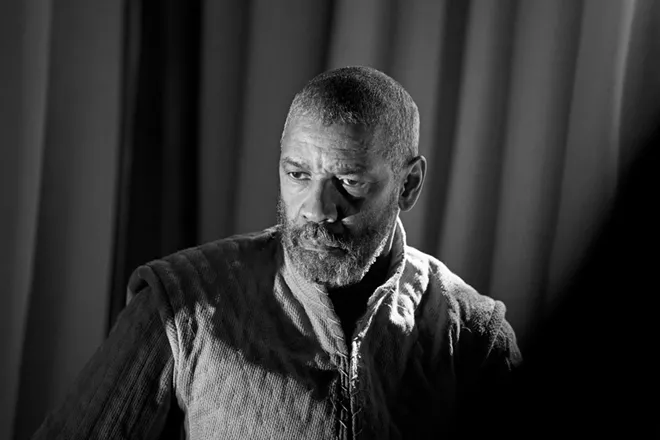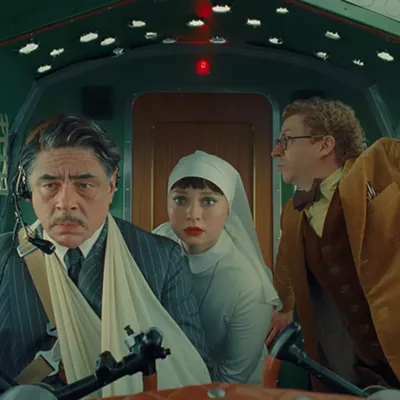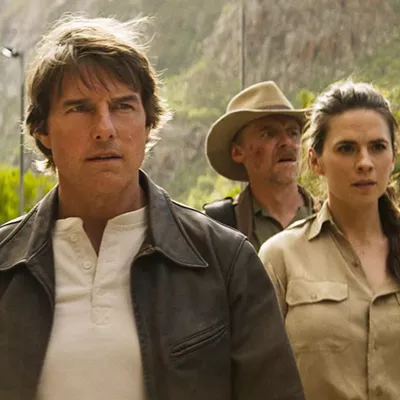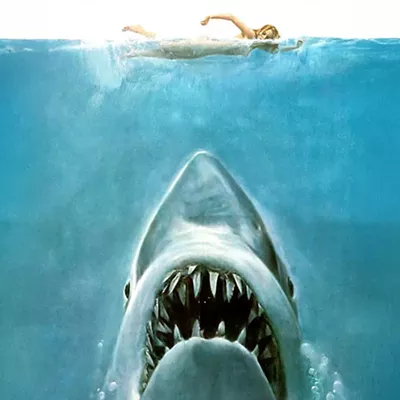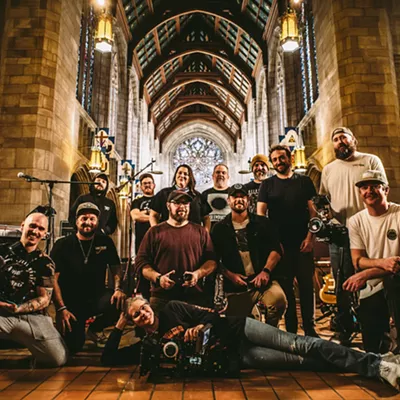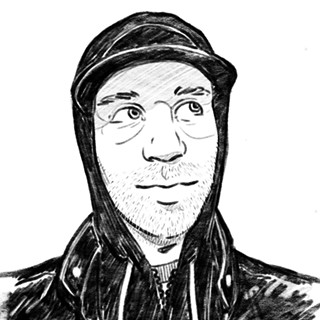Does the world need another cinematic version of Macbeth? Quite simply: No. There are over 20 film versions of the Shakespearean tragedy already, including ones featuring some of history's greatest thespians in the lead roles (Orson Wells, Ian McKellen, Judy Dench, etc.), and plenty of unique adaptations (setting the story in mobster noirs, feudal Japan, and fast-food joints).
But the unnecessariness of it all makes the fact that director/writer Joel Coen found a compelling way to tell the over-trodden tale a more impressive feat.
The Tragedy of Macbeth presents a fairly straight retelling of the timeless story of a general who rises to become King of Scotland through treacherous bloodshed, only for he and his wife to mentally unravel and descend into madness. But while many of the story beats stay intact, the presentation is anything but mundane.
Presented in a stark black and white, cinematographer Bruno Delbonnel shoots the film in a beautifully brutalist style reminiscent of German Expressionism. When the characters are moving about their minimalist sets, the framing strives for fine art. When the characters are delivering their Shakespearean prose, the film becomes a close-up fest. The camera pulls in tight to become an ultimate actor's showcase, highlighting every twitch, mannerism and emotional beat.
It makes sense that Coen's main goal for The Tragedy of Macbeth would be spotlighting the cast considering its marquee names: Denzel Washington as Lord Macbeth and Frances McDormand as Lady Macbeth. Both titans deliver very good performances — not career-best turns — but it won't come as a shock if they're both up for Oscars. Macbeth is a role Washington was born to play, where his initial quiet, questioning composure can give way to the bursts of rage and mad laughter that have become his calling card. McDormand works well when in the early, scheming Lady Macbeth mode, but seems a touch over-the-top when the queen loses her mind.
But there's one actor who quite frankly blows both of the A-listers off the screen. Kathryn Hunter — a lauded stage actor with no major film roles to her credit — absolutely steals the show with her portrayal of the tale's three prophesying witches. From her introduction, a disturbing marvel of contortion and physicality that would make Gollum tremble in fear, she brings a truly eerie, foreboding and utterly captivating presence to all her scenes. She seems like a witch out of your darkest nightmares, and Coen employs creative touches to allow her to embody all three witches— from hooding two bodies next to her to having her cast two incongruous reflections in bodies of water. If Hunter was a bigger name, she'd be a lock to win Best Supporting Actress.
The biggest change Coen makes to the script is morphing Ross from messenger to sneaky string-puller who plays all sides of the conflict. He's played with sly intrigue by Alex Hassell.
Sound design serves as Coen's key tool for furthering the tense air of impending madness that Hunter sets up. The film tries to become a psychological horror piece primarily through its audio. Footsteps thunder. Drops of blood thud like hammers. Murders of crows shriek like banshees. It can occasionally seem a bit much, but it's at least admirable as a bold choice to set this Macbeth apart from the others.
The Tragedy of Macbeth certainly doesn't reinvent the wheel. But the cinematography and acting still add up to make The Tragedy of Macbeth an adaptation worthy of the Bard's words. ♦

